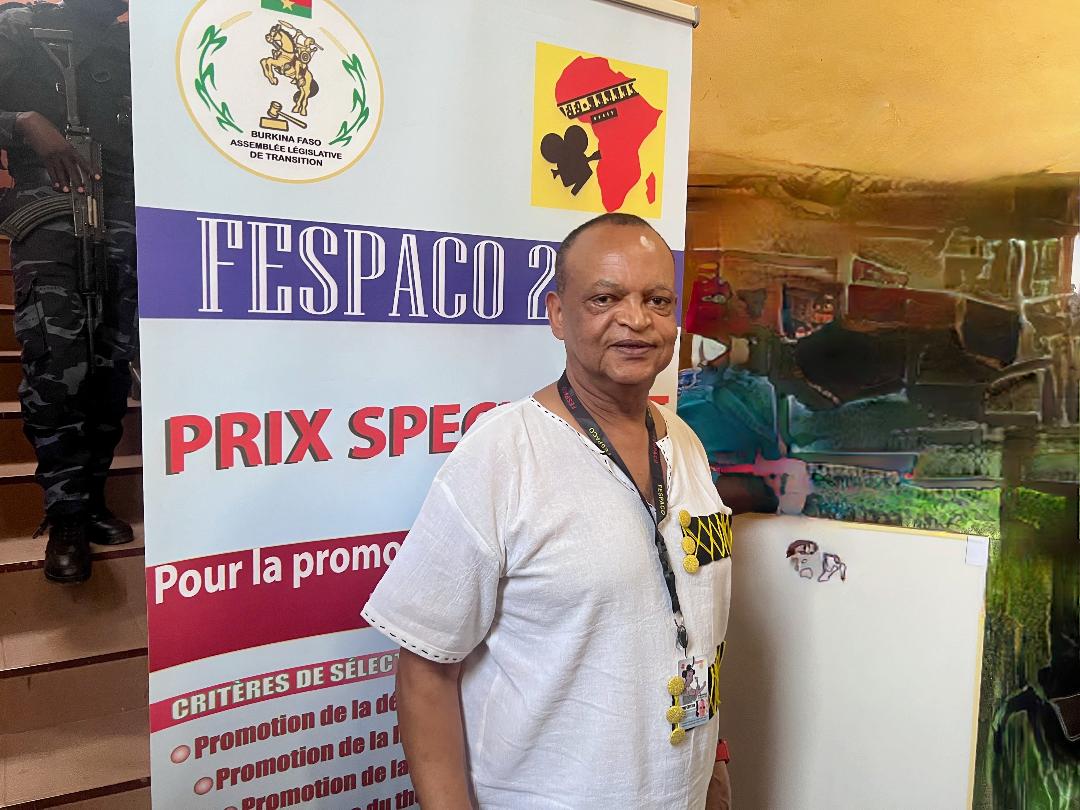
The film 'Cuba in Africa' wins Thomas Sankara Prize at Burkina Faso Festival
|
07 March 2023 20:37

By Kestér Kenn Klomegâh
From late February to early March, in Ouagadougou the capital of Burkina Faso, there was the week-long Africa's largest film festival FESPACO. In fact, FESPACO was launched in 1969. This festival provided some kind of entertainment, but the most important aspect was the platform created show screening different films with diverse themes. The competition was very keen with rewards for winners delivering excellent results.
Wolfram Vetter, the European Union ambassador in Burkina Faso,
called the film festival "an important contribution to peace and
reconciliation in Burkina Faso and beyond." The EU was the event's
largest funder after the Burkinabe government, and has contributed
approximately €250,000, equivalent of ($265,000).
Records
showed that there were more than 15,000 people, including cinema
celebrities from African countries such as Nigeria, Senegal and Ivory
Coast, and from abroad including France and the United States. Some
1,300 films were submitted for consideration and 100 selected to compete
from 35 African countries and the diaspora, including movies from
Dominican Republic and Haiti. Nearly half of those in the fiction
competition this year were directed by women.
Among
them was Burkinabe director and producer Apolline Traore, whose film
"Sira” - considered a front-runner in this year's competition -
emblematic of many Burkinabes' suffering. It tells the tale of a woman's
struggle for survival after being kidnapped by jihadis in the Sahel, as
her fiancé tries to find her.
An interesting
film, "Cuba in Africa" has received a warm, emotional response all over
the world. Most people never heard of this story. Screening this film,
people were touched by the altruism of Cubans who sacrificed their sons
and daughters on behalf of Africa.
Negash
Abdurahman, producer of Cuba in Africa, told us that his film has won
the Thomas Sankara Prize. Abdurahman is an Ethiopian-American filmmaker
and an educational technology specialist. He is also the Founder of RI
Systems Inc.
His award-winning film Cuba in
Africa was years in the making, overcoming many challenges. Cuba in
Africa tells the story of Cuban volunteers who gave everything to win
the independence of Angola, Namibia and contributed to the fall of
apartheid in South Africa.
Abdurahman spoke briefly with us from Ouagadougou. Here are the interview excerpts:
How would you interpret the film festival that took place in Burkina Faso? What are the key features during this gathering?
Abdurahman:
FESPACO is the biggest, oldest and most prestigious film festival in
Africa. FESPACO is the French acronym for the Pan-African Film and
Television Festival of Ouagadougu. The 28th edition of FESPACO took
place from February 24 to March 5 in Ouagadougu, the capital city of
Burkina Faso.
The festival opened with much
fanfare and cultural pageantry. The heads of state of both Burkina Faso
and Mali attended the opening ceremonies. For me, one of the emotional
moments of the opening ceremonies was Sidiki Diabate of Mali playing the
mesmerizing Kora, a traditional string instrument of several West
African countries.
In your critical
assessment, what were some of the messages translated to the audience
there? Are these related to the Africa's political culture, traditions
and history?
Abdurahman: FESPACO celebrates African
cinema and tells African stories through the eyes of Africans. This was
very clear at this year's festival as well. This year's theme was
"African Cinema and Culture of Peace.”
Before the
festival, there was much tension because of the conflict going on in the
northern part of Burkina Faso. Some people feared that it might not
even be held at all. Playing on this fear, according to a few Burkinabe I
spoke to, the French threatened not to protect the festival if they did
not get their way.
French troops did, in fact,
depart a few days before the opening of the festival. Fortunately, the
Burkinabe were able to provide their own protection. The festival and
all associated music and cultural celebrations concluded without a
hitch.
What place was the film "Cuba in
Africa" in the festival? What other films have similar themes to this
film during the demonstration (show) in Burkina Faso?
Abdurahman:
My film, Cuba in Africa, was an official selection in the short
documentary category. Cuba was the only country in history that came to
Africa's aid without expecting anything in return. An Island nation of
roughly 8 million people at the time, sent over 400,000 people -
military as well as civilians - to help Africans in their fight for
freedom.
This was unprecedented. I am honored to
report that we won the much-coveted Thomas Sankara Prize. You can watch a
two-minutes trailer for Cuba in Africa at http://www.cubainafrica.com
How was the final conclusion, in spite of the challenges and setbacks, of the festival?
Abdurahman:
The best films won trophies and monetary awards in their respective
categories. The mood was celebratory. FESPACO is a truly African
institution with its own warm, unique characteristics.
Leave a comment
- Popular
- Rated
- Commented
04/11/2021 - 11:05:02
28/05/2024 - 15:44:10
01/03/2021 - 09:00:37
Opinions
18/05/2025 - 16:26:37
15/05/2025 - 20:16:04
Politics
05/06/2025 - 13:42:50
Terror Watch
07/06/2025 - 21:36:45
Press Releases
05/06/2025 - 12:21:21
02/06/2025 - 21:29:33
 0
0 




































The film 'Cuba in Africa' wins Thomas Sankara Prize at Burkina Faso Festival
By Kestér Kenn Klomegâh From late February to early March, in Ouagadougou the capital of Burkina Faso, there was the week-long Africa's largest film festival FESPACO. In fact, FESPACO was launched in 1969. This festival provide